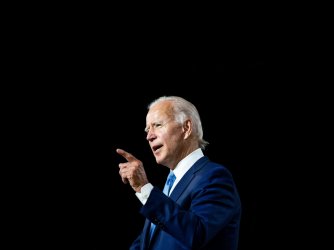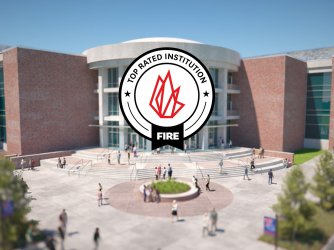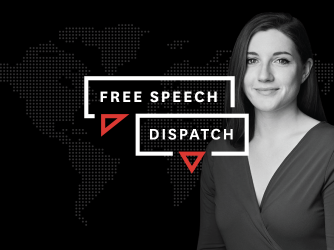Table of Contents
Yale’s Reversal On Academic Freedom Garners More Criticism
Yale University continues to take a beating in the media for its decision not to protect students' and professors' rights on its Singapore campus. In addition to FIRE's own coverage of Yale's statement guaranteeing academic freedom and then its immediate and unprincipled retreat from that position, other outlets are also pouncing on Yale's betrayal of its students and faculty members.
A story at The Daily Beast takes Yale to task for breaking its promise to students and faculty that "academic freedom" on the Singapore campus would be "guaranteed."
But this week, the debate over Yale–NUS reignited when the franchise's new president, Yale English professor Pericles Lewis, said in an interview that the new campus plans to nix political protest in order to comply with Singaporean law.
The Daily Beast goes on to point out the ways in which Yale has already sacrificed core values of free speech and academic freedom to make this venture work.
Last April, a panel of Singaporean students and alumni visited New Haven to defend the Yale–NUS venture. The event was titled "Singapore Uncensored," but no recording was permitted, and members of the press were told they could not quote speakers directly.
When a professor of politics, Jim Sleeper, asked if the panelists had themselves recorded the session, they said they had. They denied that the recording would be shared with authorities in Singapore, but one of the panel's lead members also responded, "We're not saying there's no censorship in Singapore, professor!"
Yale's cavalier attitude about the grave threats to freedom of speech and academic freedom on its new campus becomes even less defensible when you consider just the sort of censorship they're endorsing by partnering with National University of Singapore (NUS). After reading a Yale Daily News article from earlier this year detailing the sorry state of academic freedom and freedom of speech at NUS, it's even more difficult to think that Yale could make a good faith statement guaranteeing academic freedom while intending to comply with these overbearing regulations.
In the Yale Daily News, student Walker Vincoli documented some of his experiences at NUS, the school that will actually be granting the diplomas at Yale's Singapore campus.
The litmus test for academic freedom, to me, is the ability of students and faculty to engage their own country's politics. In Singapore's case, this happens in PS2249 at NUS: "Government and Politics of Singapore." I sat in stunned silence week after week as the professor recounted anecdotes of People's Action Party interference in previous iterations of the class. Lower your criticism of the PAP, he had been told. Reduce your coverage of opposition parties. These little comments peppered the lectures as he covered the basic function of Singapore's political apparatus.
When writing my midterm paper on press freedom in Singapore, I toned down criticism of the courts' decisions in successful lawsuits against The New York Times and Wall Street Journal, partly due to a fear of retaliatory grading and partly because I worried my paper broke the law against scandalizing the court.
Vincoli went on to explain that this atmosphere of fear, created by criminalized speech and intense government scrutiny of students and faculty, led his classmates to maintain their own silence as well.
It's no surprise, then, that Human Rights Watch has released its own statement lambasting Yale for its failure to diligently protect student and faculty rights and hold firm to its commitments.
Yale's willingness to curtail rights on its Singapore campus lends credence to those who would deny the universality, inalienability, and indivisibility of human rights on the basis of a country's historical and cultural context and its economic development.
Human Rights Watch gives a more detailed accounting of just how the rules of Singapore are incompatible with Yale's promises.
Many Singaporean laws are incompatible with the basic policies of a university such as Yale, Human Rights Watch said. Singapore has broad restrictions on basic freedoms for reasons of security, public order, morality, and racial and religious harmony. Censorship, supported by the Films Act, Broadcasting Act, the Newspaper and Printing Presses Act, the Undesirable Publications Act, the Internet Code of Practice, the Official Secrets Act, and the Sedition Act extends not only to broadcast, print, and electronic media but also to music, film, and computer games. Laws restricting freedom of assembly include the 2009 Public Order Act, which requires a permit to meet for any "cause related activity." Outdoor gatherings of five or more people require police permission, and the authorities may prohibit indoor meetings they judge to be too political or which take up religious issues. Limited demonstrations and rallies are restricted to Singapore's Speakers' Corner. Moreover, associations of 10 or more members may be denied government approval to operate if the Registrar of Societies judges the organization "prejudicial to public peace, welfare, or good order."
For a closer look at this issue, and how Yale's embrace of foreign restrictions on free expression may violate American law, see Andrew Kloster's forthcoming Torch post.
Recent Articles
FIRE’s award-winning Newsdesk covers the free speech news you need to stay informed.

TikTok legislation sets grave precedent for free speech

FIRE joins animal advocates, free speech groups urging Ninth Circuit to affirm ruling that allows undercover audio recording

Louisiana Tech earns top rating for free speech
